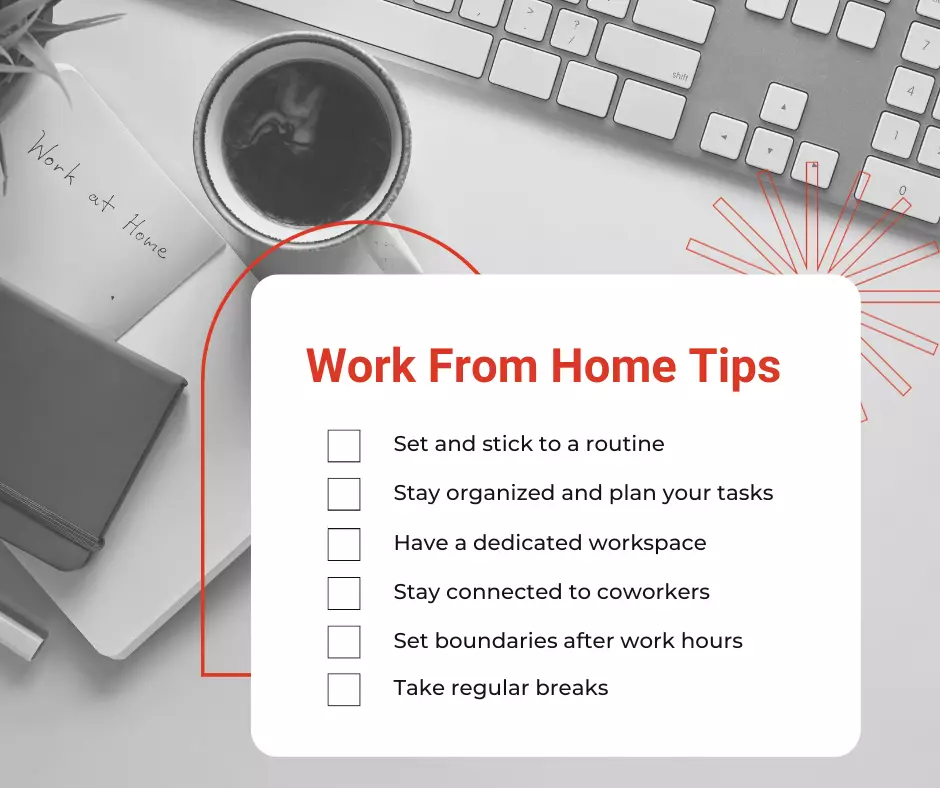Hybrid work is the future. Hereãs what you need to know.
This article was updated onô December 5, 2023.

Written by David Domzalski

Reviewed by Jessica Roper, MBA,ô director of Career Services at ¯áûéäšäšýò¢ˆ§Ý¥úô¥

Youãre likely familiar with hybrid work and the communication tools that come with it. After all, it has been the rage over the past three years after the move to hybrid work as a result of the COVID-19 pandemic. But you probably still want to know where the job market is going ã and how these recent workplace changes will evolve. Letãs explore a few of those changes and what you can expect.
What is a hybrid work environment?
Hybrid work involves part of your time working in theô companyãs officeô spaceô and the other part working at home or in aô co-working space.
The time spent in the office is primarily determined by the company.ô ô cites four distinct models:
1.ô ô ô ô A 50/50 mix between remote and office work
2.ô ô ô ô 50% remote with manager approval for more
3.ô ô ô ô Permanent remote work
4.ô ô ô ô Customized based on your team (with individual flex time)
Over my career, I have had more experience with hybrid work. (And maybe you have too!) I began my career in accounting. Most of that meant remote work for one or two days per pay period, which was two weeks. Later, that graduated to three or four days per week of teleworking ã another name for remote work.
Today, after switching to more of a content management role, I am 100% remote. And Iãm not alone. But is that a good thing? And is it here to stay?
The future of hybrid work focuses on you
A key factor in the success of hybrid work ã and the future of work in general ã will be theô employee experience. This includes everything from the laptop they assign you to collaboration tools for working with your teammates.
One software company tells us thatô ô requires an ãintegrated process involving the workplace, IT, HR and leaders and managers.ã To be effective in a hybrid work environment, companies have toô evolve the process, leveraging insights to find and incorporate tools that help rather than hinder workers.
What does that mean? Maybe your content management system will change a time or two until your team finds one that enhances productivity and flexibility. Maybe management will decide to switchô virtual meeting platforms. The idea is to find the features that make remote work just as (or more) effective as in-person work.
Driving this employee experience trend are none other than millennials and Gen Z. Asô : ãThe younger generations are most likely to leave a job that does not meet their expectations.ã For younger generations, career development is subject to change, especially since their influence is poised to grow as boomers increasingly exit the workforce.
°ÏÇú,ä»what should you expect from a hybrid workplace,ô and what is reasonable to request? Well, as you mightãve guessed, it will depend on where you work.
My best advice as you navigate the job boards is first to figure out what works for you and your family. You have a variety of options ã with many companies even offering fully remote positions. Working remotely opens up opportunities in other cities, but it also makes it harder to connect with co-workers.
Also, remote work can help you achieve a better work-life balance and offer greater flexibility for individual work preferences. On the other hand, having your home as your workplace can make it even harder to disengage from work when 5 oãclock strikes.
I personally prefer remote work. That said, I would be open to the right hybrid work situation. I like to have time to collaborate with my teammates ã whether in person or during a videoconference. But I also want time to hyperfocus in my own space.
How to be productive and maintain a work-life balance in a hybrid work environment
When it comes to remote or hybrid work, the word that comes up constantly isô productivity. Workers want to make sure they stay productive. Employers want to knowô howô productive workers actually are.
According to the Society for Human Resource Management, the key to striking the right balance for employers in a hybrid workplace is toô ô during the day rather than count the hours theyãre online. Offering support and appreciation can help keep hybrid employees motivated no matter if their workplace is an office building or their kitchen table. And if the work gets done, does it matter when or where it happens?
Just as important as productivity isô work-life balance. In aô , almost 80% of respondents said their lives were positively affected by less time in the office. Things like spending less time in traffic ã and more time with friends and family ã attributed directly to respondentsã better quality of life.ô
Thatãs great in theory. But reality offers a slightly different challenge: hyperconnectivity. Your company likely provides you with a variety of electronic devices to keep in touch: a mobile phone, laptop and tablet. Maybe you have just one or maybe all three. How do you fight the urge to not check emailsô on your days off? How do you ãleave work at workã when the tools to stay connected are in the home office right across the hall?
Achieving this balance will likely be a two-way street. Youãll need an employer that trusts you enough to work remotely, at least part of the time, and offers the right tools to support your productivity. Youãll also needô self-disciplineô to create healthy boundaries between work and life ã and then stick to them.
Becoming a leader and getting noticed in a hybrid world
Hybrid work also provides unique leadership opportunities. First, current managers are still learning the ropes when it comes to handling assignments for fully remote teams. This presents a chance forô emerging leadersô to understand what itãs like to be an employee in a hybrid work environment.
Having knowledge about what works and what doesnãt is a distinct advantage going forward. Be observant and donãt be afraid toô lead where youãre planted.
Second, it helps to know about workplace trends before others do. This is something I like to demonstrate in group meetings as a way to stand out. I make it my mission to stay on the cutting edge of my industry. Then, I take this knowledge and discuss it in our staffwide meetings. It sets me apart, my supervisor loves it, and it allows me to help my co-workers.
There is plenty of evidence to support this leadership approach. Theô ô says companies are looking to invest in ãlearning and training on the job and automating processes ãÎ to deliver their organizationãs business goals in the next five years.ã So, it helps to be the person leading that training effort.ô
From recognizing opportunity to understanding what best fits your life, todayãs hybrid work environment offers plenty of promise for employees. The trick is to know what you want ã and then find the employer that can support it.ô Then you can step out in faith and offer your diverse talents to the world.

ABOUT THE AUTHOR
David Domzalski is an entrepreneur, copywriter and storyteller. Heãs an effective communicator with a passion for helping people better their lives financially. His writing has been featured on multiple outlets including AOL, FanSided, Forbes, GOBankingRates, MSN, Nasdaq and Yahoo ã along with his blog, RunTheMoney.com. He lives in Gettysburg, Pennsylvania, with his wife and two children.

ABOUT THE REVIEWER
Jessica Roper, ¯áûéäšäšýò¢ˆ§Ý¥úô¥ director of Career Services, is a seasoned leader with over 15 years of experience in leadership within higher education. She has honed her expertise in student services and career development and is passionate about helping others discover and refine their skills.
This article has been vetted by ¯áûéäšäšýò¢ˆ§Ý¥úô¥'s editorial advisory committee.ô
Read more about our editorial process.
Read more articles like this:



